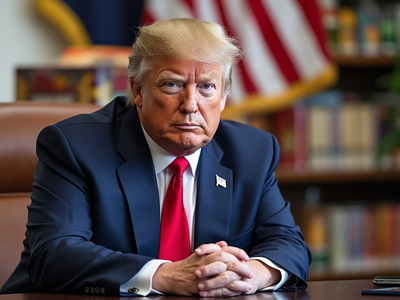
Arab League Summit Urges Protection for Palestinians Amid Ongoing Conflict
Leaders call for international intervention while condemning violence in Gaza.
The 34th Arab Summit commenced in Baghdad on Saturday, bringing together heads of state and delegations from member nations of the Arab League.
Central to the discussions was the deteriorating situation in Gaza, where leaders expressed grave concerns over what they termed 'genocide' and 'ethnic cleansing' of Palestinians by Israeli forces.
The summit attendees unanimously called for urgent international measures to protect the rights and lives of the Palestinian people.
Egyptian President Abdel Fattah el-Sisi, in his opening remarks, emphasized the necessity for a unified Arab response to the crisis, highlighting the historical and cultural connections among Arab nations and the Palestinian cause.
The leaders collectively denounced the military actions that have led to significant casualties and displacements within Gaza, urging for immediate ceasefire and humanitarian access to aid those affected.
Iraqi Prime Minister Mustafa Al-Kadhimi, the host of this year's summit, underscored the importance of regional solidarity in addressing the ongoing humanitarian crisis.
Several leaders, including those from Jordan and Lebanon, echoed calls for an end to hostilities and stressed the need for a revitalized dialogue to achieve a just and lasting peace.
The summit also witnessed discussions on broader geopolitical implications of the Gaza conflict, including its potential impact on regional stability and relations among Arab states.
There were calls for reinforcing unity among member countries to better support the Palestinian people in their pursuit of statehood and self-determination.
As the summit progresses, leaders are expected to formulate a resolution outlining their collective stance on the crisis in Gaza, which will likely include appeals to the United Nations and the international community for increased diplomatic pressure on Israel to halt its military operations and to allow humanitarian assistance to reach the affected population.
Significant attention is also directed towards the implications of the conflict for broader regional dynamics, including relations with non-Arab nations and entities traditionally involved in the Israeli-Palestinian peace process.
Delegates have emphasized the need for consistent support not only in diplomatic arenas but also through tangible assistance on the ground.
Central to the discussions was the deteriorating situation in Gaza, where leaders expressed grave concerns over what they termed 'genocide' and 'ethnic cleansing' of Palestinians by Israeli forces.
The summit attendees unanimously called for urgent international measures to protect the rights and lives of the Palestinian people.
Egyptian President Abdel Fattah el-Sisi, in his opening remarks, emphasized the necessity for a unified Arab response to the crisis, highlighting the historical and cultural connections among Arab nations and the Palestinian cause.
The leaders collectively denounced the military actions that have led to significant casualties and displacements within Gaza, urging for immediate ceasefire and humanitarian access to aid those affected.
Iraqi Prime Minister Mustafa Al-Kadhimi, the host of this year's summit, underscored the importance of regional solidarity in addressing the ongoing humanitarian crisis.
Several leaders, including those from Jordan and Lebanon, echoed calls for an end to hostilities and stressed the need for a revitalized dialogue to achieve a just and lasting peace.
The summit also witnessed discussions on broader geopolitical implications of the Gaza conflict, including its potential impact on regional stability and relations among Arab states.
There were calls for reinforcing unity among member countries to better support the Palestinian people in their pursuit of statehood and self-determination.
As the summit progresses, leaders are expected to formulate a resolution outlining their collective stance on the crisis in Gaza, which will likely include appeals to the United Nations and the international community for increased diplomatic pressure on Israel to halt its military operations and to allow humanitarian assistance to reach the affected population.
Significant attention is also directed towards the implications of the conflict for broader regional dynamics, including relations with non-Arab nations and entities traditionally involved in the Israeli-Palestinian peace process.
Delegates have emphasized the need for consistent support not only in diplomatic arenas but also through tangible assistance on the ground.
Translation:
Translated by AI










